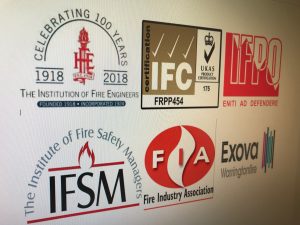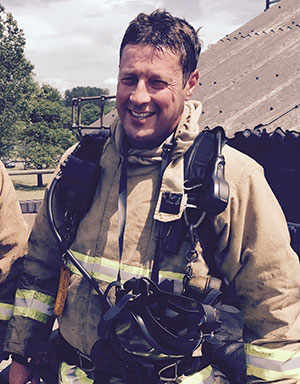 Dame Judith Hackitt’s final report has now been published. The main recommendations relate predominantly to buildings 10 stories and higher. But what about the “direction of travel” outlined in the interim report, the issues of competency and accreditation for fire risk assessors which were anticipated after the Interim Report was published? Will this proposal see the light of day? Or should the industry itself lead the way forward?
Dame Judith Hackitt’s final report has now been published. The main recommendations relate predominantly to buildings 10 stories and higher. But what about the “direction of travel” outlined in the interim report, the issues of competency and accreditation for fire risk assessors which were anticipated after the Interim Report was published? Will this proposal see the light of day? Or should the industry itself lead the way forward?
The findings outlined in paragraphs 1.20 and 1.23 of the interim report, (which point out that there are no statutory registration or accreditation requirements for fire risk assessors-an area in which, nationally, we are lagging behind many parts of the world) clearly confirm Dame Judith’s concerns.
And at paragraph 1.73 there is a clear call to action to “the professional and accreditation bodies (who) have an opportunity to demonstrate that they are capable of establishing a robust, comprehensive and coherent system covering all disciplines for work on such (complex) buildings. If they are able to come together and develop a joined up system covering all levels of qualification in relevant disciplines, this will provide the framework for Regulation to mandate the use of suitable, qualified professionals who can demonstrate that their skills are up-to-date.”
In relation to risk assessors, the issue of competency has long been an issue for discussion. In one criminal case, where a fire risk assessor was prosecuted successfully under the Fire Safety Order, the judge described the current system, which allows anyone to provide advice about fire prevention without formal qualification as “jaw dropping”.
The wording used in the interim report findings is significant. The professional and accreditation bodies are asked to ‘come together’ to establish a system to ensure competency.
As an outsider looking in on the fire safety industry, I can see no evidence or likelihood of the professional bodies who presently accredit fire risk assessors coming together to take matters forward. The present accreditation schemes have between approximately 350 and 450 accredited assessors on their registers. But these numbers are divided between 4 or 5 schemes so that no individual register has sufficient critical mass to lead the way.
In addition, there appear to be historic disagreements, ideologies and personality clashes which are preventing any sensible discussion as to the way forward. I cannot see that there is one professional body responsible for looking after the interests of fire risk assessors whether accredited, or qualified through experience, as fire safety officers.
There are presently numerous organisations, such as the IFE, IFSM, Warrington, IFPO, IFA with an interest in taking this forward. Do we really need another Institute, of Fire Risk Assessors? But as individual bodies who might independently represent say 180, 120, 40 and 20 fire risk assessors, they separately have no voice. Bring together the 350 to 450 accredited assessors, the very people the government will hold out as examples to the rest, then their one voice becomes stronger, both in an advisory capacity and from a negotiating point of view.
Accreditation and registers are likely to come. Dame Judith was integral to the setting up of the OSHCR register, and she will have learned from the mistakes made with that system. She has clearly called out to the industry to lead the way in this area. Is it not now time for the relevant bodies to get together and talk about the best way forward?
Failure to do so at this stage will lead to criteria for competency being imposed upon the industry by outsiders, which is never the best solution. If the professional bodies outlined above really have their members best interests at heart, they should get together now and start talking about solutions rather than past differences.
If the professional bodies are not prepared to take the lead, then the bigger players in the market place should. The pooling of marketing resources could lead to a very effective search engine/website to bring the hold industry together, with all parties benefiting. Allowing those who are not accredited but who have significant professional industry experience, and qualifications to be ‘passported’ to accreditation would make the group even stronger.
Hackitt’s final report has made findings, reached conclusions and made recommendations. The implementation of those recommendations will require industry expertise and experience. Fire risk assessors need to come together as a group now so that they can be part of the implementation process and not be dictated to.
As a collective, surely the voice of this group could not be ignored?
Fire Safety Lawyer / Solicitor


